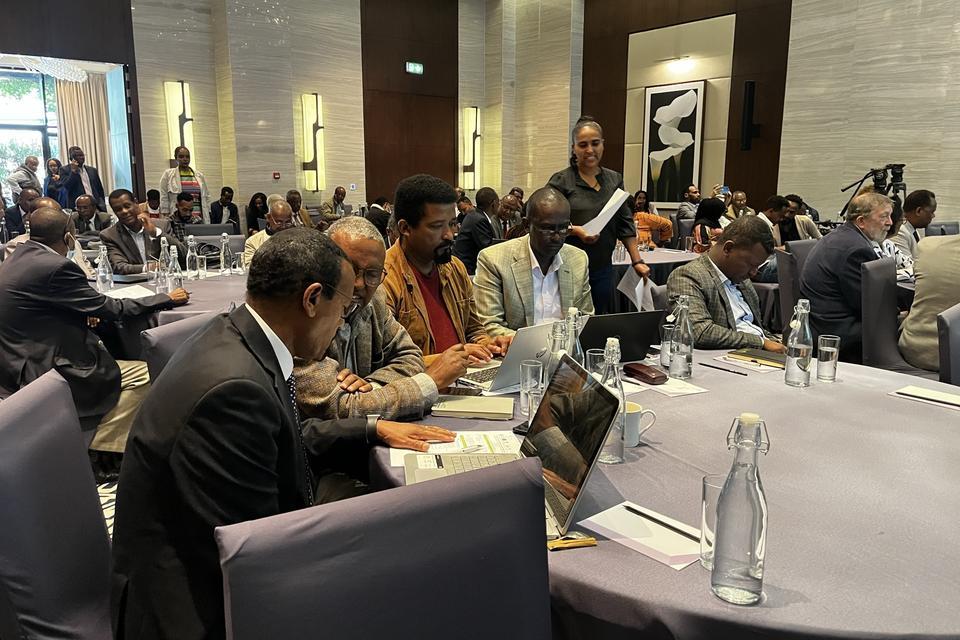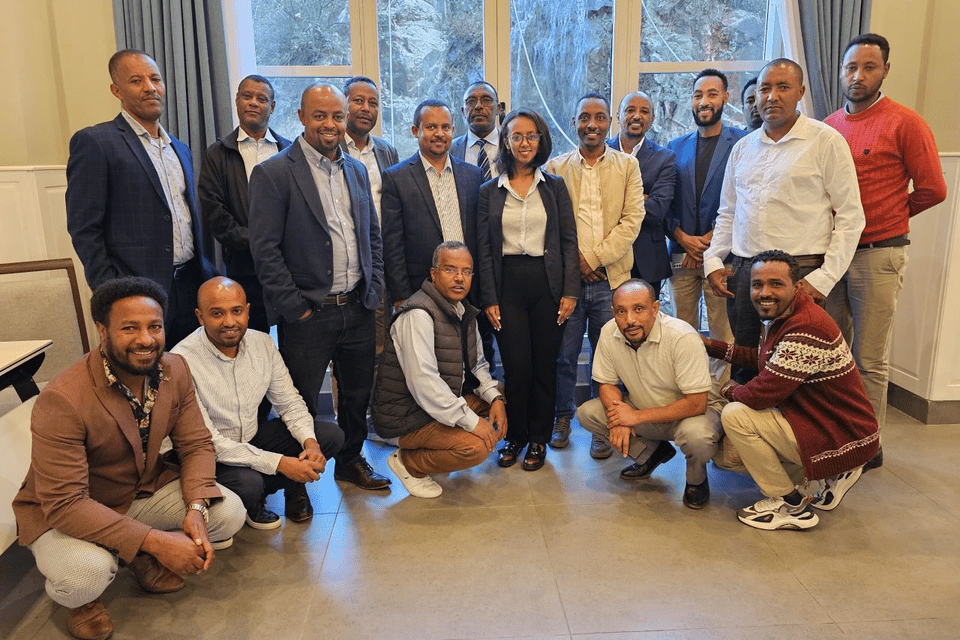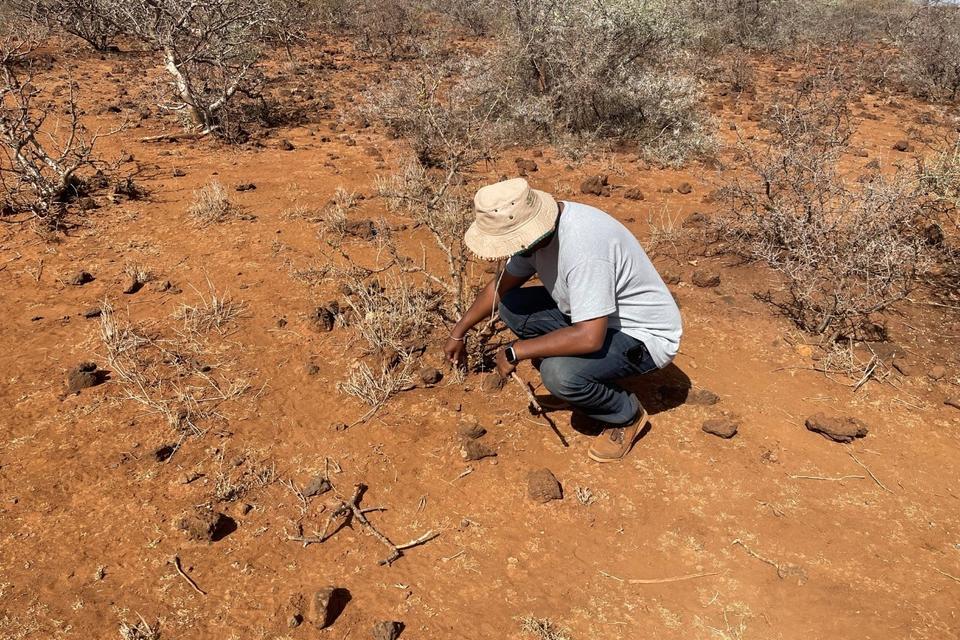Blog Strengthening Climate Resilience in Pastoral and Agro-pastoral Areas of Ethiopia through Advisory and Climate Information Services
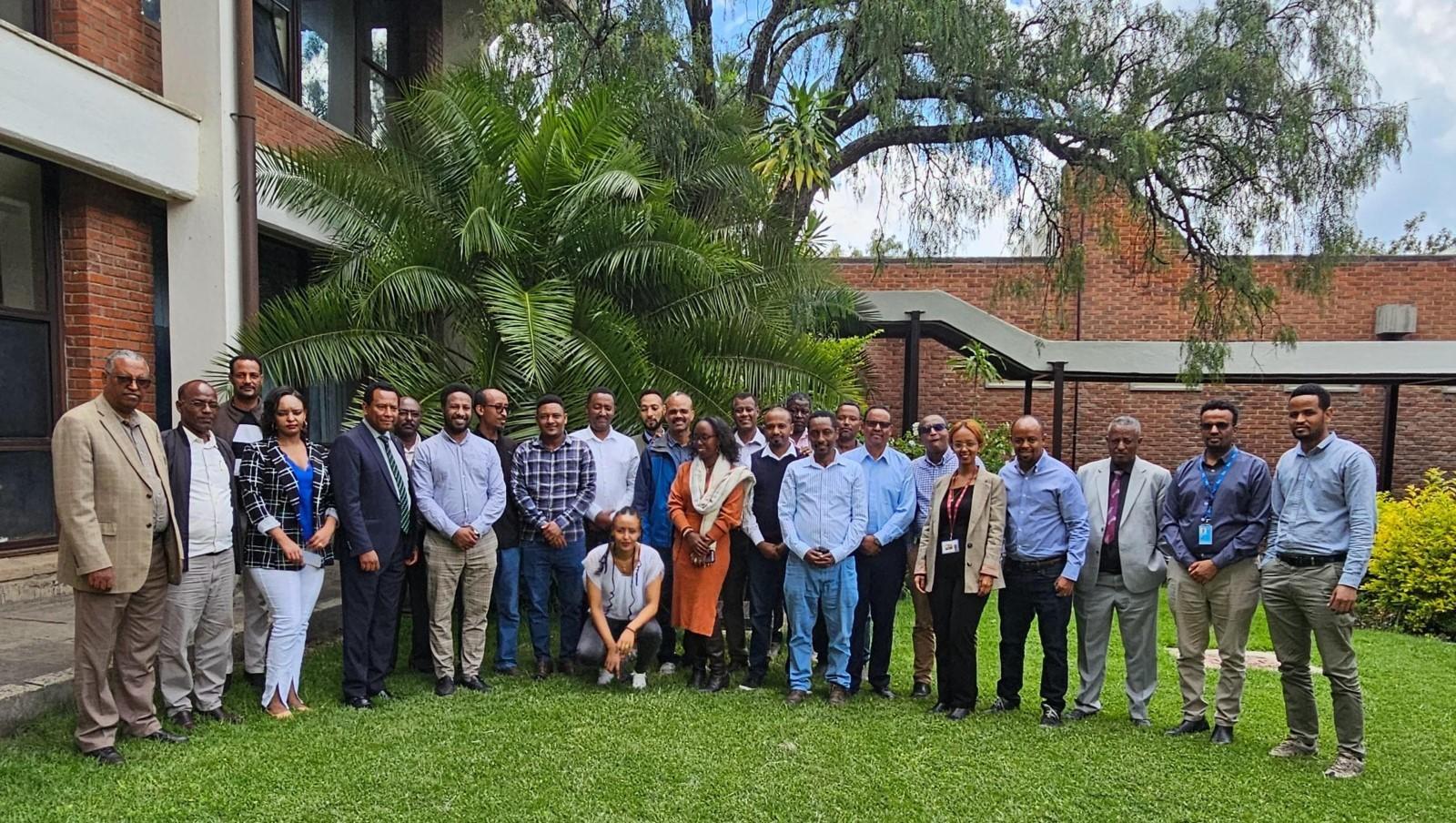
The recurring drought in Ethiopia has devastated pastoral and agro-pastoral communities, affecting 63% of the country's landmass. Millions of people face starvation, and approximately seven million livestock animals have perished. To address this urgent issue, the Alliance of Bioversity International and CIAT, together with the Ethiopian Agricultural Transformation Institute (ATI), Ethiopian Institute of Agricultural Research (EIAR), and the Ministry of Agriculture (MoA), organized a national workshop on April 8, 2024.
By: Sintayehu Alemayehu, Dr. Sintayehu Workneh, Lidya Tesfaye, Liyuneh Gebre, Numery Abdulhamid, Yodit Yaregal
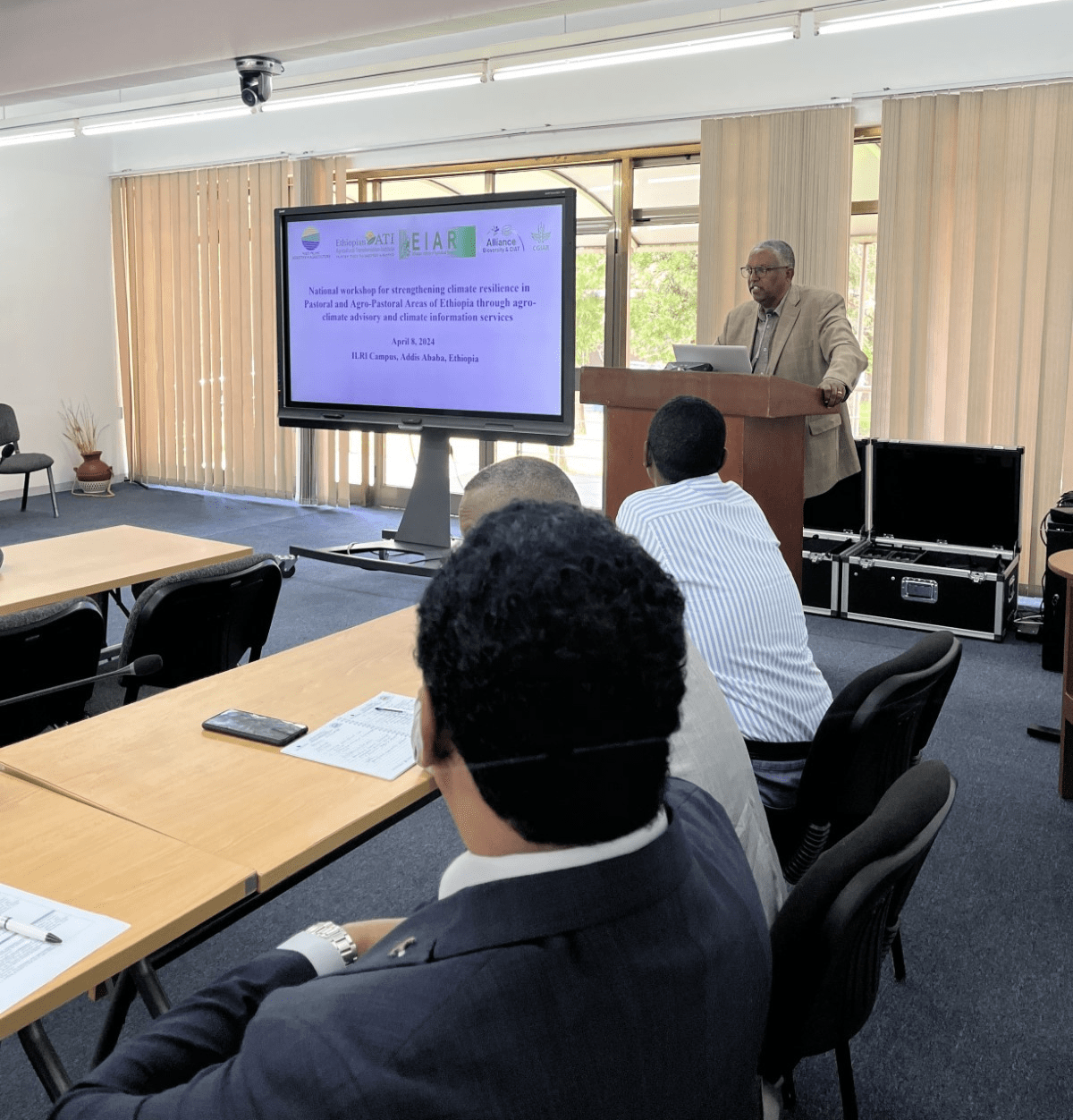
The workshop - held at the CGIAR International Livestock Research Institute (ILRI) in Addis Ababa - brought together stakeholders from various national and regional institutions including the Ministry of Irrigation and Lowland (MILLs), Oromia Agricultural Research Institute (OARI), the Ethiopian Disaster Risk Management Commission (EDRMC), the South Ethiopia Region Bureau of Agriculture, the International Fund for Agricultural Development (IFAD), the Pastoralist Forum Ethiopia (PFE) and CARE. The aim was to engage in meaningful discussions on challenges, opportunities, and best practices for strengthening climate resilience and conflict management in the region through agro-climate advisory and climate information services.
The workshop was opened by Dr. Yoseph Mekasha - Director for Livestock Development at ATI - acknowledging that understanding the socio-economic perspective of the pastoral community is essential for understanding their role in natural resource management to drive economic growth. Dr. Yoseph stressed that
“The sector needs to be improved through accessible technological information, which is why I believe that today's workshop will bring key insights into the application of Climate Information Services (CIS). This workshop is a timely opportunity to prioritize and address the challenges through collaboration, and I firmly believe that by bringing together efforts and resources from relevant institutions we can pave the way for a resilient and prosperous future for pastoral communities.”
Following the opening remarks, a series of presentations were given by experts and leaders from various stakeholder institutions, with discussions facilitated by Dr. Tekleyohannes Berhanu (Director of the Pastoral & Agro-pastoral Areas Technology Promotion Directorate at EIAR).
Dr. Girma Mamo - Senior Agro-metrologist at the Climate and Computational Science Research Directorate, EIAR - proposed digital Pastoral Climate Advisory for Development (PCA4D) as an effective tool for coordination across institutions to drive capability-focused ventures. He also discussed the intricate relationship between human beings, rangeland and livestock, emphasizing the importance of digitalization and value chain partnerships as the only way forward.
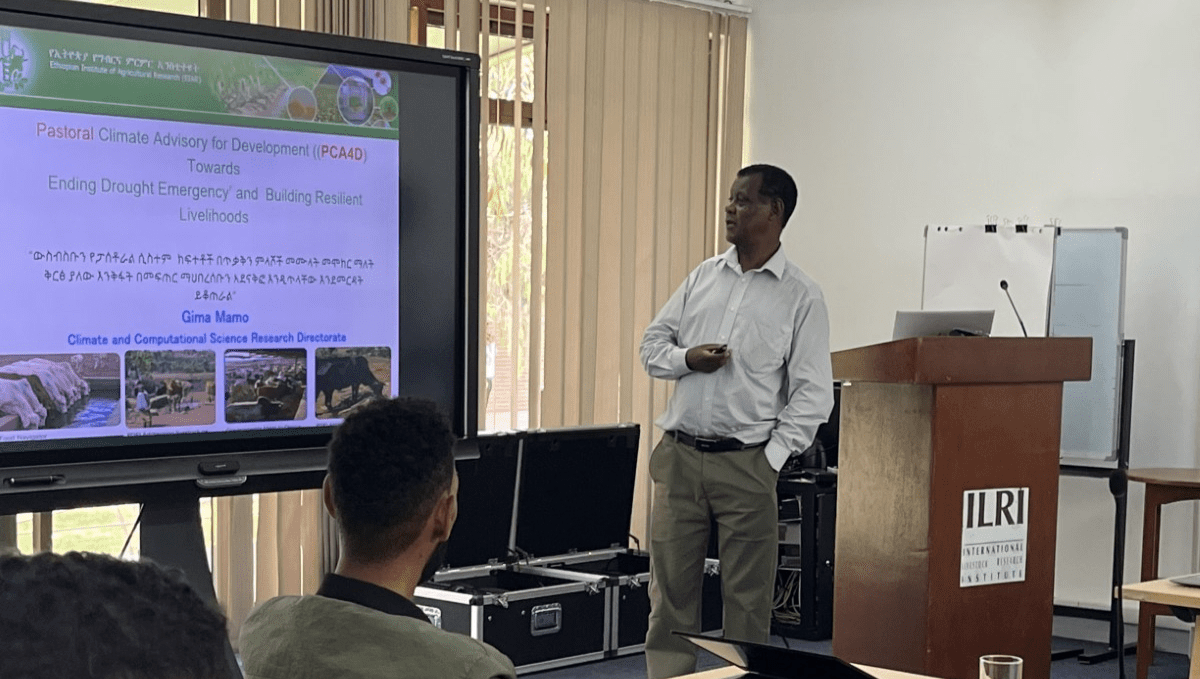
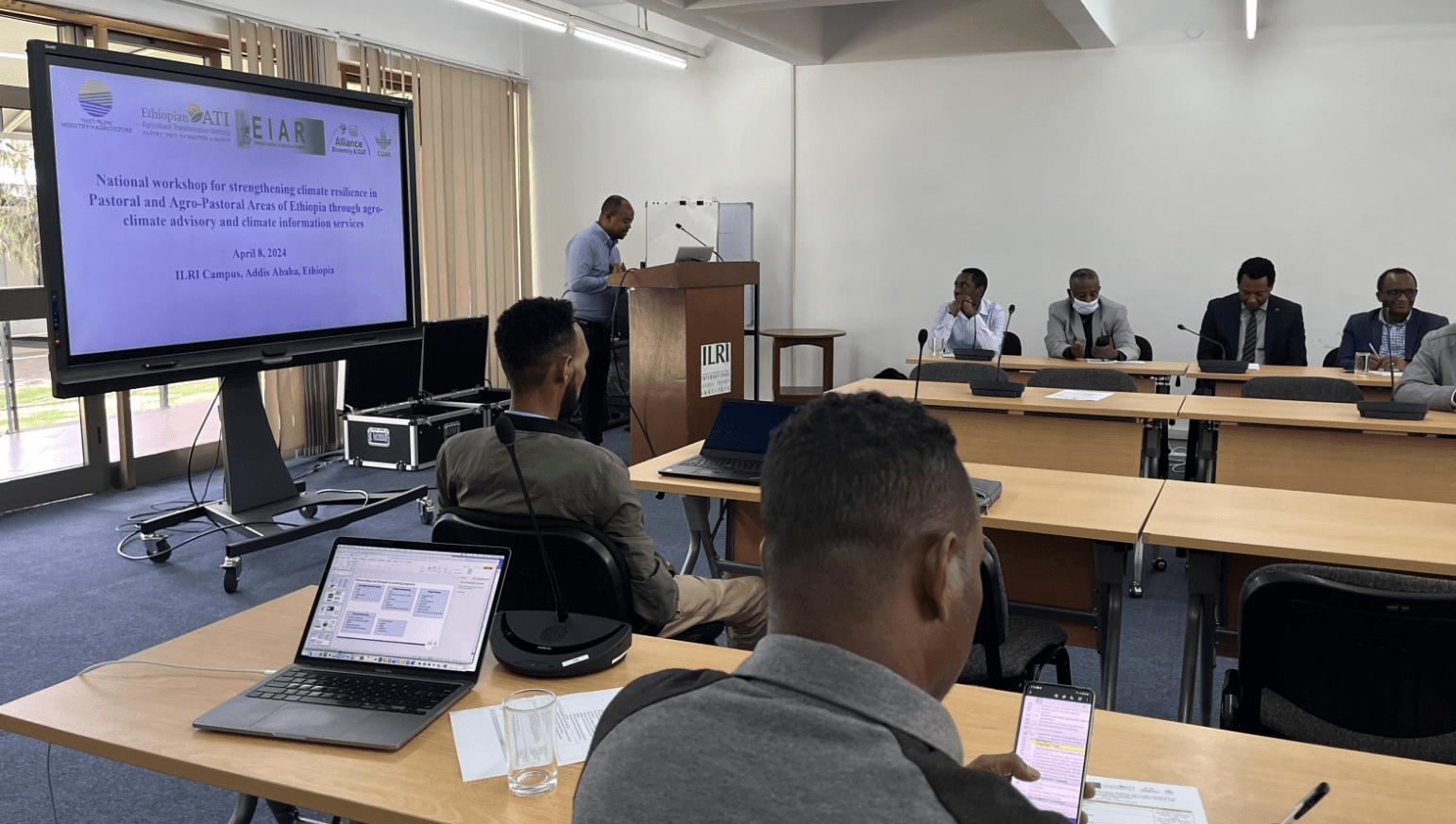
Dr. Sintayehu Workneh - Research Coordinator at Alliance of Bioversity International and CIAT - focused on conflict management solutions for pastoralism, highlighting the need for context-based climate agro-advisory services and rangeland resource management to address current and future challenges in the pastoral and agro-pastoral areas of Ethiopia.
Sintayehu Alemayehu - Scientist and Research Team Leader at the Alliance - emphasized the need for decision support systems in drylands, based on experiences in Ethiopia's Borena region and other African countries. He highlighted the overlooked role of agro-climate advisory and climate information services in pastoral areas. These services are crucial for enhancing resilience and adaptation in regions heavily affected by climate variability and change. He also stressed the importance of integrating scientific knowledge with indigenous practices to improve information flow and acceptance among local communities.
Liyuneh Gebre - Associate Researcher at EIAR - presented the joint agro-climatic advisory service delivered by EIAR, the Alliance and Yabello Dryland Research Center. The advisory services support pastoralists and agro-pastoralists to make informed decisions and optimize resources to promote sustainable practices.
Following the presentations, participants delved into an insightful Q&A discussion where several challenges, concerns and aspirations were shared. The discussion highlighted several key points regarding the integration of indigenous knowledge in CIS, agro-advisory services, research, private-sector collaboration, information dissemination, weather monitoring, climate risk finance, government direction and stakeholder mapping. Lastly, the need to map relevant stakeholders and develop guidelines for climate information and agro-advisory services is shared as the next step in this collaborative effort.
Mr. Seid Osman - Focal Person for Lowland Livelihood Resilience Project (LLRP) - highlighted the importance of the initiative for the government, particularly regarding the LLRP's strong alignment with its objectives and the emphasis on robust collaboration: “Furthermore, the MILLs would provide support for technical advisories, resilience assessments, and pathway development." He also brought attention to LLRP's interest in strengthening a lowland information and early warning system and risk profiles for contextualized early warning and disaster response efforts.”
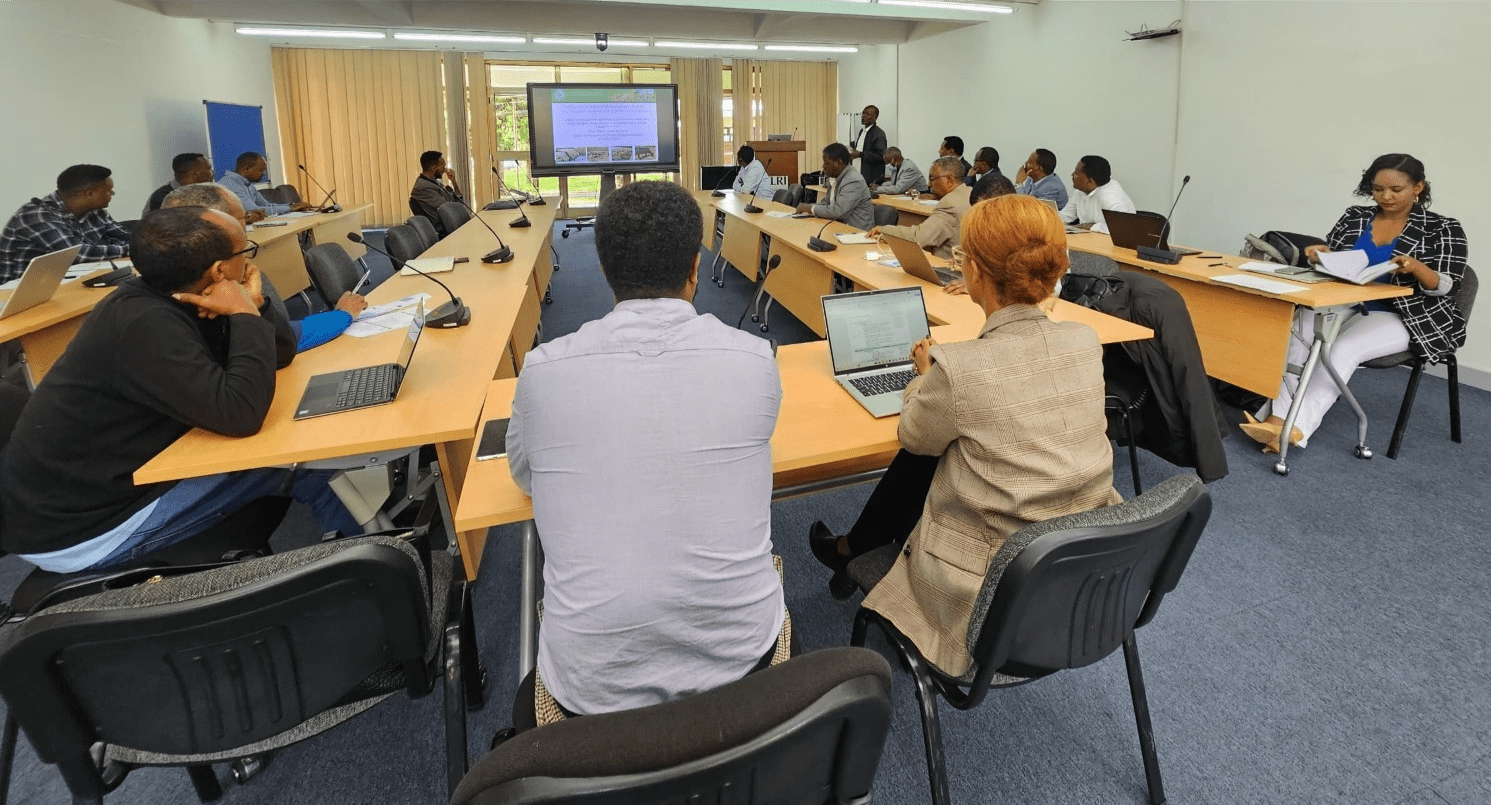
Dr. Samuel Tuffa from OARI emphasized,” We can’t continue with the 'business as usual' mindset; we need to integrate indigenous knowledge and science.” He also stressed that “we need to structure the action plan based on the assessment of resources and the capacities of stakeholders.” Moreover, he promoted the use of Human Centered Design in this process, building infrastructure such as weather stations, and understanding the monetized value of such interventions.
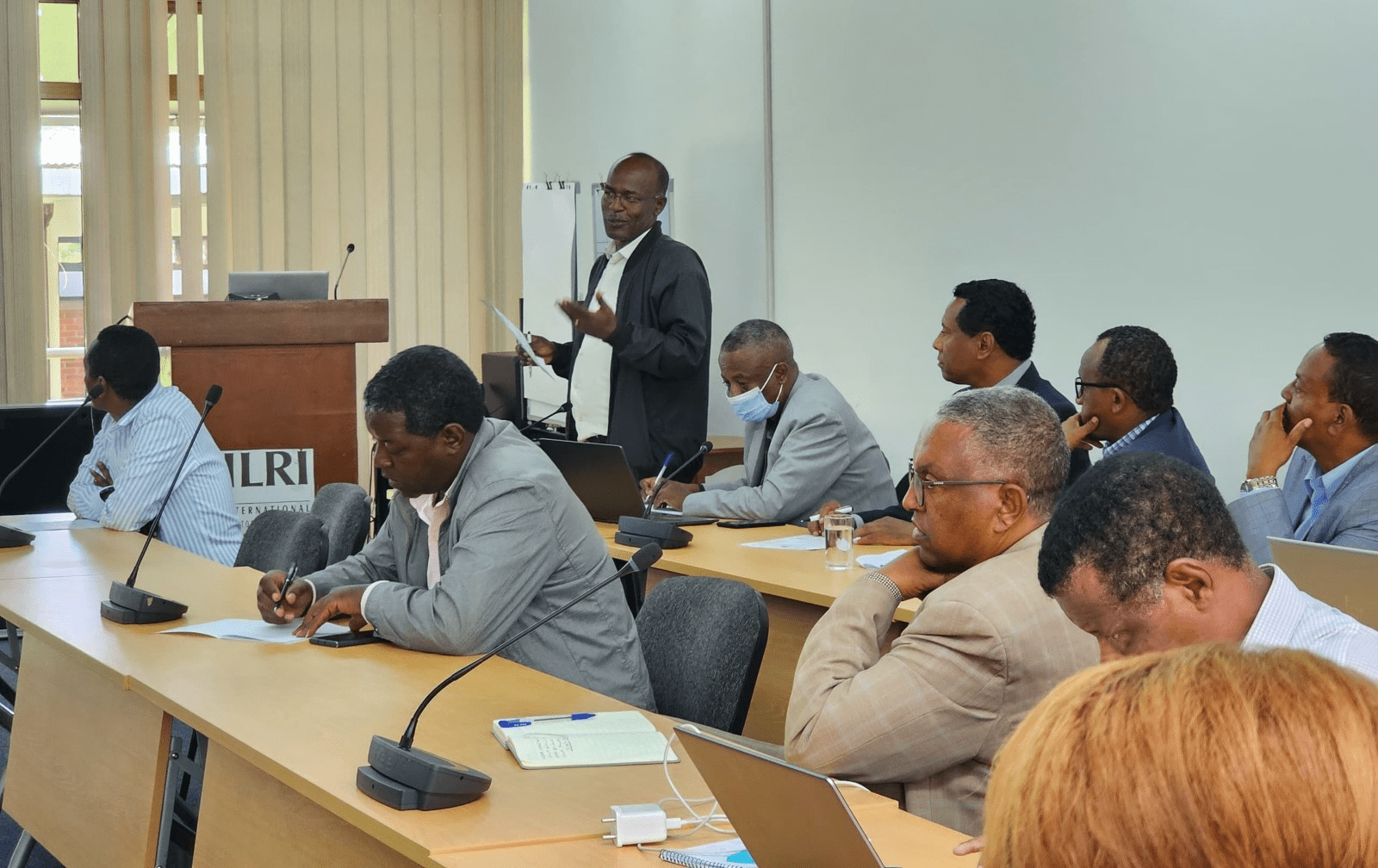
Mr. Tsegaye Gobena from the EDRMC expressed their readiness to collaborate, acknowledging the challenge of drought and the importance of the Woreda region's disaster risk profile for enhancing adaptive capacity and response measures, particularly in agriculture and livestock to ensure climate resilience in the local economy.
Mr. Andegna Shinale - Deputy Head of the South Ethiopia Region Bureau of Agriculture - expressed his appreciation for the workshop's contribution by recognizing its importance in offering exemplary practical cases that informed participants. Furthermore, Mr. Andegna acknowledged that “southern Ethiopia could make good use of these insights to further advance sustainable practices and mitigate the challenges faced by communities in the southern regions.”
The workshop ended with a joint expression of commitment to collective action. Participants the Alliance for creating strong collaboration with the government and implementing institutes to ensure sustainability, and for choosing timely intervention areas and their dedication to establishing partnerships for resilience. The shared goal of building climate resilience in pastoral and agro-pastoral communities was emphasized, and the workshop served as a catalyst for forging stronger collaborations and ensuring a coordinated approach towards addressing climate challenges and fostering sustainable development in the region.
The Team
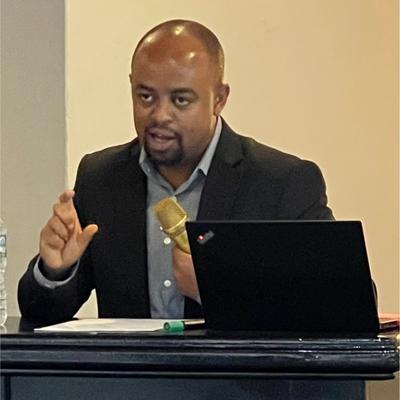
Sintayehu Alemayehu
Research Team Leader
Sintayehu Workeneh Dejene
Research Management Coordinator
Lidya Tesfaye
Research OfficerSee Also
